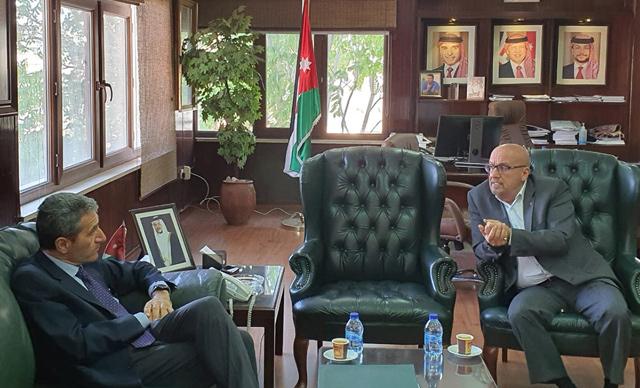- Local News
- Thu-2020-06-04 | 02:55 pm

During the meeting, Abul Saud reviewed the ministry's efforts to deal with water conditions amid the COVID-19 crisis, the Jordan News Agency, Petra, reported.
The minister said that the demand on water has increased by 40 per cent above the annual average since the beginning of the crisis.
On the current national water policy, he said that the government has taken several measures to balance water needs and continuous efforts to spread awareness among citizens in the sphere of adapting to the emergency circumstance currently faced in the world and in Jordan.
The ministry has many programmes, plans and projects to secure new water sources, including the implementation of the Aqaba water desalination project, the "National Water Carrier" project, as well as the extraction of deep underground water and the expansion of utilising treated water for agriculture, he said.
The minister noted that Jordan "lauds” the Italian interest in providing support to the water sector to implement water and sanitation projects, especially given the European nation’s experience in expanding renewable energy programmes and increasing the volume of operating wastewater treatment plants.
For his part, the Italian Ambassador expressed appreciation for Jordanian efforts in facing the increasing water burdens, noting the Italian private sector’s interest in implementing Jordanian infrastructure projects in the water, energy and railways fields.
He also referenced the Italian government’s approval of a step to provide a loan for the implementation of the Balqa sanitation project, which will serve the capital's adjacent areas of Ain Al Basha, Baqa, Moubes, Abu Naseer, Safout, Umm Dananir, Qaqish and Kharsha, and to rehabilitate parts of the Baqaa sanitation network.
Cassese also highlighted Italy’s "advanced experience” in the fields of water desalination, treatment and renewable energy.









